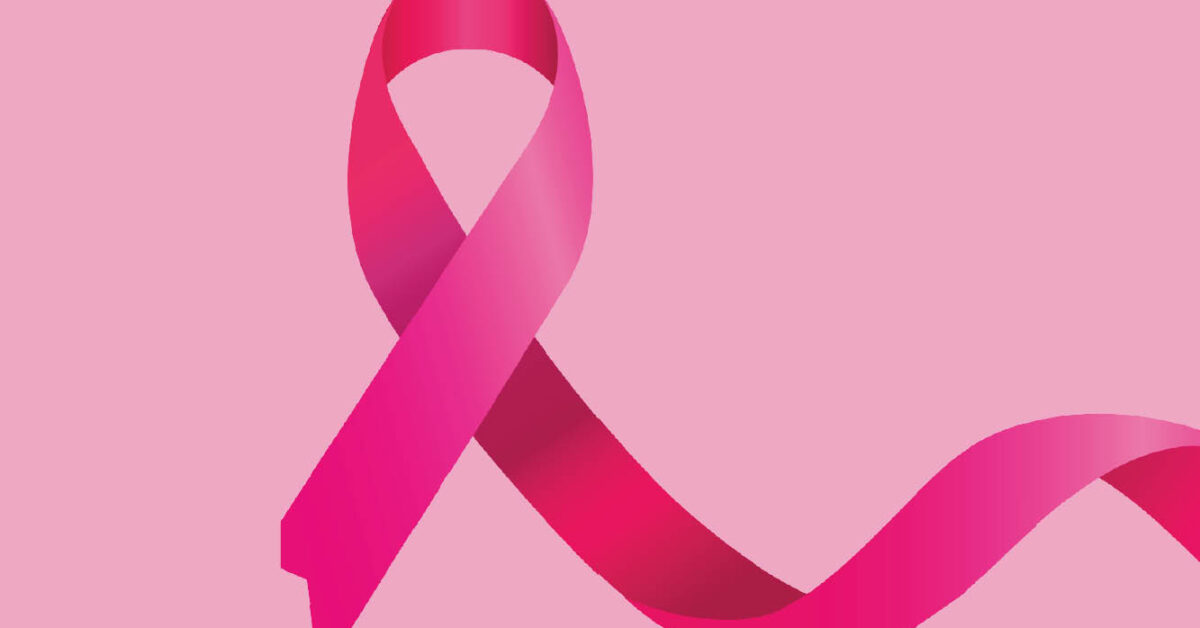
Protect Your Back When Lifting Weights
October 2021
Insurance 411
October 2021According to the World Health Organization, 2.3 million women globally were diagnosed with breast cancer in 2020. 685,000 persons succumbed to the disease that year. By the end of 2020, 7.8 million women who had been diagnosed with breast cancer in the previous five years were still battling the disease, making it the world’s most prevalent cancer. Approximately 0.5-1% of breast cancers occur in men.
Breast cancer mortality changed little from the 1930s to the 1970s, when the 10-year survival rate was only 47%. Improvements in survival started in the 1980s in countries with early detection programs combined with various modes of treatment. Today, a woman who is diagnosed with non-metastatic breast cancer has an 84% chance of surviving ten years. We’ve come a long way, baby . . .
When it Comes to Post-Cancer Breast Reconstruction, Experience Matters
Plastic surgeons, as well as breast cancer patients who have been there, know that experience matters when it comes to plastic surgery, especially delicate processes like breast reconstruction. “For patients who have been diagnosed with breast cancer and have undergone a mastectomy, or are thinking about having a preventative mastectomy, there are options to rebuild what has been lost,” says Dr. Stephen Delatte, plastic surgeon with Delatte Plastic Surgery & Skin Care Specialists. “It is important to choose a surgeon who specializes in breast reconstructive procedures as they have expertise creating a natural shape and silhouette for patients who have lost tissue due to disease, injury, or genetic defects.”
Breast reconstruction is designed to restore one or both breasts to near-normal shape, appearance, symmetry, and size following the loss of tissue. “Implantation is the most common type of breast reconstruction procedure, which utilizes saline or silicone implants to create a new breast shape,” says Dr. Hugo St. Hilaire, who also specializes in plastic surgery at Delatte.
“Flap procedures relocate donor tissue from other areas of the body, including the stomach, arms, back, or glutes. Fortunately for patients, especially those with surgical anxiety, reconstructive procedures can occur in tandem with a standard mastectomy or lumpectomy to reduce downtime following surgery.” “We offer the full spectrum of restorative procedures, from the more traditional implant-based approach to more complex microsurgery and flap procedures,” adds Dr. St. Helaire.
This October, in observance of Breast Cancer Awareness Month, Dr. Delatte and Dr. St. Hilaire ask that everyone take the time to schedule a breast cancer screening. Talk with your primary care physician about annual mammograms, self-examination techniques, and other cancer screening services. Prioritizing your health is never a waste of time, and the best protection is early detection.
Delatte Plastic Surgery & Skin Care Specialists have built a solid reputation based on patient satisfaction, quality care, and innovative treatment options. Their team of aestheticians supplement physician experience with decades of knowledge, top-quality products, and outstanding customer service. They offer the full spectrum of restorative procedures, from the more traditional implant-based approach to more complex microsurgery and flap procedures. For more information, go to drdelatte.com or call 337-269-4949.
New Pain Management in Breast Cancer Surgery
A global pandemic, the strongest hurricane to ever hit Louisiana and a follow-up hurricane six weeks later are all things JoAnn Johnson never would have imagined she would have to face, much less during a battle with breast cancer. Johnson had a mammogram in July 2020 and discovered she had breast cancer. Her doctors put together a plan and the first step was a double mastectomy, but then Hurricane Laura set her sights on Southwest Louisiana.
“It was a crazy time,” Johnson recalls. “I evacuated to Oklahoma and was just really in a holding pattern with all the damage and power outages that had happened back home.”
She was able to finally have her surgery at the end of September performed by Memorial Medical Group Breast Surgeon Amanda Ellington, MD. As with most surgeries post-operative pain after mastectomy may persist in up to 60 percent of patients. Efforts to reduce post-operative pain and inflammation include a multimodal approach which aims to improve both short and long term pain. This multimodal approach includes administration of anti-inflammatory and narcotic pain medications in addition to more selective pain relief strategies including interventional anesthesia techniques.
“In the age of the opioid epidemic crisis, our aim is to minimize and perhaps even eliminate the need for opioid medications while still providing excellent pain control and, in some instances, complete pain relief,” Dr. Ellington says. “A mastectomy brings with it all types of emotions and concerns from patients, and we want to make this procedure as stress free as possible and reducing pain associated with the surgery plays a big role.”
That is why Dr. Ellington has teamed up with Memorial Hospital anesthesiologists with a new pain relief procedure to help patients recover faster post-surgery. In the past, epidurals and other more selective nerve blocks have been utilized to help combat post-operative pain in the upper abdominal and chest areas.
More recently, a novel procedure called the Erector Spinae Plane Block (ESP Block for short) has been prescribed and may be performed by a physician anesthesiologist prior to procedures.
“In our practice, we have been performing the ESP block prior to mastectomies with excellent post-operative pain relief and patient satisfaction,” says Memorial Medical Group Anesthesiologist Kyle Nester, MD. “The ESP block is found to come with less risks than an epidural, requires less pain medication later on and allows most patients to go home the next day.”
The ESP block is a procedure where an ultrasound-guided regional anesthetic is injected into a specific location in the muscles of the back. This leads to a good 48-72 hours of pain relief immediately following the surgery during a time when pain can be at its worst.
“I think it’s great when physicians from different specialties can collaborate to improve the patient experience,” Dr. Ellington says.
Johnson, a retired nurse, found the ESP block to work as advertised. She has had experience with similar nerve blocks, having had one last year when she underwent shoulder surgery.
“I didn’t have to take very much pain medicine as the pain was controlled and manageable. I really don’t care for opioids and how they make me feel,” Johnson says. “This was a nice alternative that helped me recover quicker and at the right time as Hurricane Delta would soon hit our area.”
For more information about the ESP Block or the Memorial Breast Health Center, go to www.lcmh.com/breasthealth
American Cancer Society
Partners with Health Systems Across Louisiana to Increase Screening and Decrease Cancer Disparities
Statewide collaboration is part of a national initiative, Return to Screening, aimed to minimize COVID–related declines in health care
The American Cancer Society (ACS) has partnered with more than 51 institutions across the country, including Louisiana health care systems: Baton Rouge General, Mary Bird Perkins Cancer Center, Our Lady of the Lake LSU Health, St. Francis Medical Center and Woman’s Hospital to improve screening rates as part of a national Return to Screening (RTS) initiative. This specific intervention is made possible through sponsorship provided by Genentech, a member of the Roche Group.
At the onset of the COVID-19 pandemic, elective medical procedures, including cancer screening, were largely put on hold to prioritize urgent needs and reduce the risk of the spread of COVID-19 in healthcare settings.
One consequence of this has been an immediate and substantial decline in cancer screening. In response, ACS has initiated a RTS initiative to support public health agencies, health care providers, and screening advocates across the nation to promote and deliver cancer screening appropriately, safely, and equitably during the COVID-19 pandemic and beyond. Additional thanks to Genentech, a member of the Roche Group, Pfizer Oncology and Merck (known as MSD outside the United States and Canada) along with other partners for their national sponsorship and support of the campaign.
“Regular cancer screening can save lives. Screening tests can help detect changes in an individual’s body before they become cancer and catch cancer early when it may be easier to treat. Yet, far too many individuals for whom screening is recommended remain unscreened. This has been exacerbated by the COVID-19 pandemic,” explained Letitia Thompson, Vice President of Cancer Control for the American Cancer Society. “We’re proud to partner with these health care systems during this very critical time because far too many cancers are going undetected right now. Together, with our partner’s support, we will help get everyone back on track with their screenings.”
Through the RTS initiative, ACS has partnered with health systems to implement focused efforts to screen people who have historically had low screening rates and are most affected by COVID-19. These Return to Screening Quality Improvement Projects will support health systems to apply quality improvement tools and evidence-based interventions in under-resourced communities to minimize the effects of the pandemic on cancer screening. As part of this collaboration, the ACS will award $20,000 to each partnering health system, totaling more than one million to support the first of a series of cohorts in the initiative.
Success for this initiative includes: minimizing the effects of the pandemic on breast, cervical and colorectal cancer screening; addressing disparities and reduce barriers to screening exacerbated by the pandemic; creating learning communities to foster best practice sharing; and executing long lasting, sustainable and meaningful processes.
For more information, contact Kym McGee, American Cancer Society Vice President of Marketing and Communications, at [email protected].
Cancer Fighting Kitchen
The Impacts of Nutrition and Lifestyle on Breast Cancer
by Stephanie Kestel Karpovs
Breast cancer is the most common cancer in women. So, how can we impact prevention, treatment and recurrence? There is growing evidence that lifestyle factors including weight, heavy drinking, smoking, physical activity and dietary patterns can be associated with a higher breast cancer risk. Once diagnosed, patients may experience fatigue and drug-induced side effects. Nutritional intervention may play a large role to improve quality of life and long-term survival rates.
STRIVE FOR A HEALTHY WEIGHT
Being overweight is a strong risk factor for breast cancer. Stanford physicians have reported that even a 10% weight gain (ex. 15 pounds in a 150 lb. person) can strongly increase the chances of a diagnosis as well as a recurrence for this disease. Daily exercise and a low fat, plant-based diet are encouraged. A study in the Clinical Journal of Oncology found that breast cancer patients who ate five or more servings of vegetables and fruits each day and walked an average of 30 minutes per day cut their risk of recurrence by half after nine years! The National Cancer Institute recommends exercising for four or more hours per week to control hormone levels and help lower breast cancer risk.
PLANT-BASED DIET
A 2017 article in the European Journal of Cancer Prevention looked at dietary factors and breast cancer prevention. The Standard American Diet is high in processed foods, saturated fats, meats, dairy products, fried foods, refined carbs and added sugars. While french fries and Oreos are plant-based, they are definitely not health foods. In contrast, studies link the dietary patterns in whole-food, plant-based diets (ex. the Mediterranean diet) with protective elements for breast cancer. These tend to be fundamentally high in micronutrients, including fiber, vitamins and minerals, contain favorable fats such as Omega 3’s found in olive oil and fish, and provide high amounts of phytonutrients (compounds that give plants vivid colors) and antioxidants from vegetables, fruits, beans and whole grains.
Here are a few foods with properties that may lower breast cancer risk according to registered dietician, Jillian Kuala:
Leafy greens: Spinach, kale, arugula, chard and mustard greens are a few of those with carotenoids and folate (B vitamin concentrated in leafy greens), both of which are linked with a reduced risk of breast cancer and a reduced risk of recurrence.
Fruits: Nutrients in citrus fruits such as oranges, tangerines, lemons, grapefruit and limes provide vitamin C, folate, carotenoids and flavonoids with great antioxidant effects. Other fruits such as peaches, apples and pears have been shown to safeguard against breast cancer.
Fatty fish/Olive oil: Salmon, sardines, and mackerel are high in omega 3’s and have selenium and antioxidants. Olives and olive oil (in small amounts) are great ways to eat less refined oils.
Cruciferous vegetables: These have notably high anti-cancer potential so fill up on broccoli, cabbage, cauliflower, Brussels sprouts, and broccoli sprouts.
Beans/Legumes: Get your fiber fix with black beans, chickpeas, pinto beans, kidney beans. One study showed high bean intake to reduce breast cancer risk by 20%.
Berries: All berries have protection against cell damage and further development of cancer cells. In a study of nearly 80,000 women, high berry intake, especially blueberries lowered the risk of estrogen receptor negative (ER-) breast cancer.
Herbs and spices: Turmeric, ginger, parsley, thyme, rosemary and oregano have powerful anti-cancer effects. Include a wide variety in your diet.
Importantly, there’s no blanket recommendation that cures cancer and some supplements or nutrients may interfere with the effectiveness of specific interventions (ex. soy products and Tamoxifen). Strive to cut out sugary drinks, processed meats, fried foods and alcohol during treatment while incorporating properties of a cancer-fighting kitchen for overall wellness. Speak with your physician and dietician to tailor a plant-based program that best complements your personal treatments.






